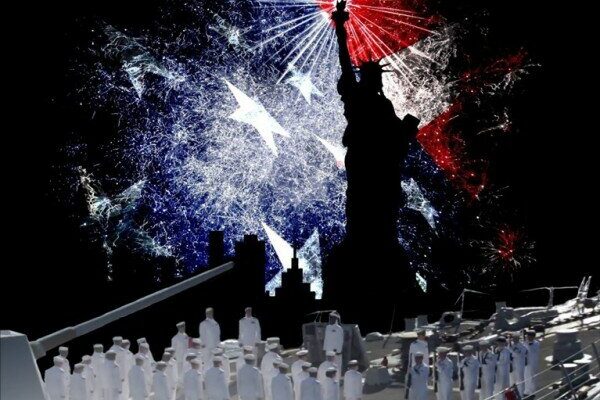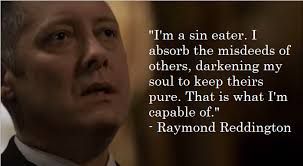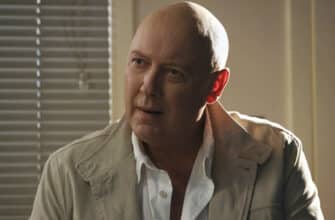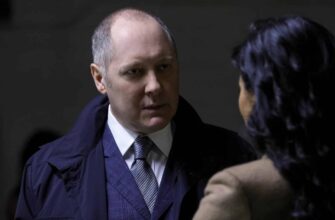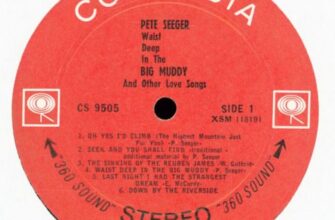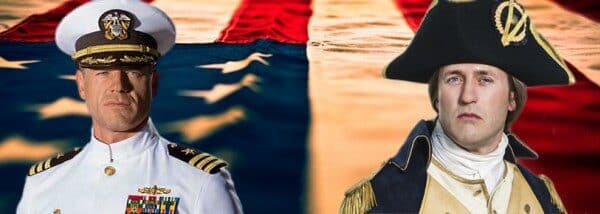
Images Courtesy of TNT and The History Channel
On this great American holiday that signifies the end of the old America and the beginning of the United States of America, I’d like to float a theory. The story of The Last Ship, is clearly one founded in fiction. However, there are some historical truths where we can easily draw comparisons. This is done in good fun and has not in any way been confirmed by anyone associated with the production of The Last Ship. There are some mild spoilers conceptually. If you have not seen all of the episodes to date, you have been warned.
Warning: Spoiler Alert
The first form of this analogy is obviously accomplished military service that parlay into being asked to be the first President and Commander-In-Chief of the new version of the country. As The Last Ship is first and foremost a story about a military ship and its crew trying desperately to save the world, the parallel begins there. In both cases, these respective men were charged in leading their men in a mission that would ultimately save their world. In George Washington’s case, the mission was to lead his army and defeat the British allowing the colonies to break from the oppressive rule of the British. In Chandler’s case, his mission was command the Nathan James in a mission to find a cure for the virus and prevent global extinction.
In some loose connection, both Chandler and Washington were men of Virginia. We know that Washington was a lifelong man of Virginia. The son of a wealthy family, Washington would eventually inherit his family estate in Mt. Vernon, Virginia. Eventually in the late 1750s, he would return home to Mt. Vernon under the assumption that he would live out the remainder of his life as a family man running said estate. What we know of Chandler, he was a resident of Virginia before commanding the Nathan James on the mission he still finds himself on. To my knowledge that could be as much about the Naval base in Norfolk and less about him being a man of Virginia. Either way, I’ll take the parallel.
Another parallel we can draw from is in the enemy itself. In Washington’s case, the enemy was the British. Conceptual or tangible. Everything stems from that. Protecting the people of the colonies from the tyrannical rule of the British. For Chandler, the enemy is any person or group that seeks to steal or destroy the cure. And by some extension preventing the cure from making its way to the people. And by that I mean all of the people. Whether it be the Russians in season 1, Amy Granderson’s plan to advance a chosen few, or this newest threat of the “chosen ones” Chandler fights to preserve the cure and the promise to deliver it to all. Which is not unlike Washington fighting against everything the British hoped to employ to maintain control over the colonies. All of the British legislation that pertained to the collection of taxes being the tip of the sword.
Where the analogy becomes speculative would naturally come either when Tom Chandler is asked to lead the army (loose term) or when the dust settles and the Nathan James has restored order amongst the chaos, asked to preside over this new version of our country as the Commander-In-Chief. In the most recent episode, we were given a tease to the former. The Nathan James arrives in Norfolk to find not only supplies, but military personnel. Pilots, Seals, and police. Before the episode is over, we get a small glimpse of Chandler commanding more than just the Nathan James. Orchestrating missions that sent out planes and personnel in various directions to secure these secret laboratories. In that moment, the seed was planted.
The more attractive theory is one, that at least I hope we are four or five seasons away from seeing materialize. That of course being, President Tom Chandler. It is clear that for the immediate future, Tom Chandler’s mission is ongoing. The finish line of protecting the cure and ensuring that they can save every last person possible is far from over. However, if we are to assume that Chandler and the Nathan James are able to complete that mission at some point and restore order and health to the world at large, the assumption is not that unrealistic. Not unlike George Washington leading armies against the British, essentially founding Guerrilla Warfare, and ensuring the safety of these ‘Americans’.
Insert the second Continental Congress. George Washington may not have been the driving force of the second Continental Congress of the likes of Benjamin Franklin, Thomas Jefferson, John Hancock or the Adams cousins (John And Samuel.) Which is probably the only way a similar notion could be floated for Tom Chandler. Shortly after the second Congress met, George Washington was appointed to General of the Continental Army. Similarly, I would assume that if the story lines move that far past the initial threat, that Chandler would also prefer to stay in the background until such a time as this new nation needs him to step up beyond his current responsibilities.
Citing the defeat at the Battle of Long Island, we can draw another slight comparison. George Washington was not undefeated. There were bumps in the road. The Battle of Long Island being maybe the most gruesome. While Chandler has not experienced (within the Last Ship series to this point) a defeat of that magnitude, his record is not without blemishes. Men and women under his command have been lost. Most laying down their lives for the mission. Some civilians lost in the crossfire. But clearly the Last Ship mission is not without casualties.
Washington’s failure in Philadelphia in 1777 did two things that may present themselves on the show. First, the defeat prompted Congress to consider removing Washington from Command. While there is no reason to believe currently that this is a story line in the works, I would not be surprised if it presented itself somewhere along the way. Twice now, we’ve seen an episode that at least flirted with the idea of the Nathan James sans Chandler. Losing him is not the prize. Having Chandler triumphant in a return might be.
Secondly, the notion of another nation joining the effort does seem like a real possibility. Following the defeat in Philadelphia, France joined in as allies to the American effort. Now we’ve seen that Russia has some semblance of a functioning army/navy. Yet in the most recent episode we discover that some of these laboratories are located in Europe. Potentially setting up some sort alliance between an established nation or nations (i.e. England, France, Germany, etc). Almost as if it were the inverse or absolute zero effect of the United States’ involvement in World War II. But that’s a reference for another time.
I wish I had a stronger case on this next point. Any discussion about George Washington cannot possibly leave out Valley Forge. In the timeline, Valley Forge is an epic ordeal. In the winter of 1777, it is believed that Washington lost as much as a third of his men to disease. The connection here is not the magnitude but the subject matter. Chandler, almost ironically, has not lost many of his crew to the disease in a literal sense. However, in means of effect, we can go back to the first season when Miller leans over to the female shipmate that died and says, “You were wrong, I’ll remember you” (or something to that effect). The numeric loss was small, but the impact of this crew staring at the lethality of the virus in real context was significant.
In the future there must be a final battle that signifies the end of one major act and the transition into another. The Battle at Yorktown may very well have been that moment for American and George Washington. The insurmountable blow that sends a clear message to the enemy, we have won and you have lost. Thus, marking the move to the next stage. For Washington, that meant eventually heading back to Mt. Vernon, but not permanently.
Going back home is also a nice tie-in although it completely ignores any sense of a timeline. Chandler too goes back home. This we’ve already seen and therefore more or less doesn’t fit. But for about 10 minutes of screen time, Chandler flirts with and makes a decision to stay in Norfolk, resign his commission and be there for his children. Which is also short-lived. Chandler’s father makes it very clear that his duty to the mission and his men takes priority. A notion I’m sure was passed along to Washington and in no small part contributed to Washington’s decision to return.
Now for the elephant in the room. A number of sources cite that the concept of the President as depicted by the Constitutional Convention, was done so with George Washington specifically in mind. Does anyone who follows The Last Ship believe for a second that Tom Chandler is not the image of Commander-In-Chief? Especially as it pertains to what he’s done, what he may plan to do, and what we as Americans would want from the leader of this new United States?
Does anyone think that Tom Chandler could not transition smoothly into that role. Sensitive to issues of national security? Foreign policy whether militarily or otherwise? The economy of a new or rebuilt nation might take some doing, but hopefully along the way, survivors educated and well versed in that department would be found an brought into the fold. Everything that embodies the character of Tom Chandler also embodies the character and virtue most Americans would hope to find in the President of the New United States of America.
While none of this is supported or confirmed by anyone of note, it’s not as far-fetched as it may sound. Whether we are talking about the struggle and conflict to preserve the goal at hand, or the actual events that define the great American remember George Washington to be. Both of these men, one fictional and one very real, seem to be cut from the same cloth. So as we celebrate this Day of Independence and look forward to tomorrows episode, “Solace” sit back and ask yourself:
“Is CDR Tom Chancellor the New America’s George Washington?”
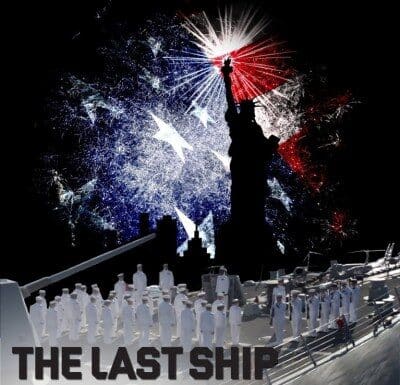
Courtesy of TNT
